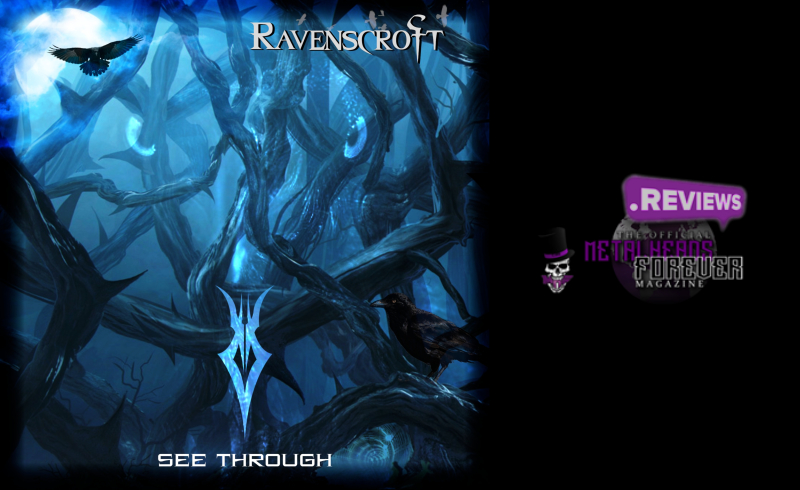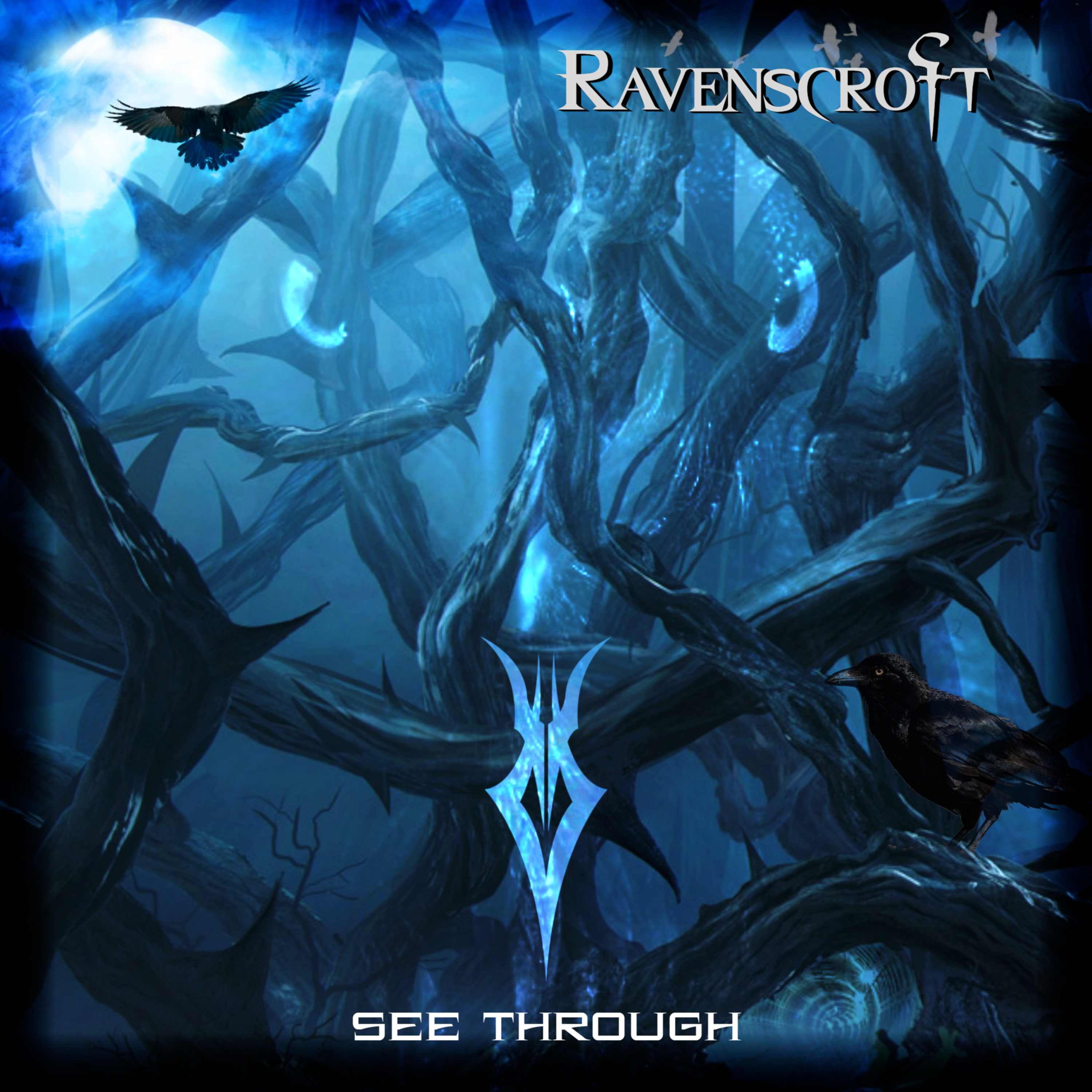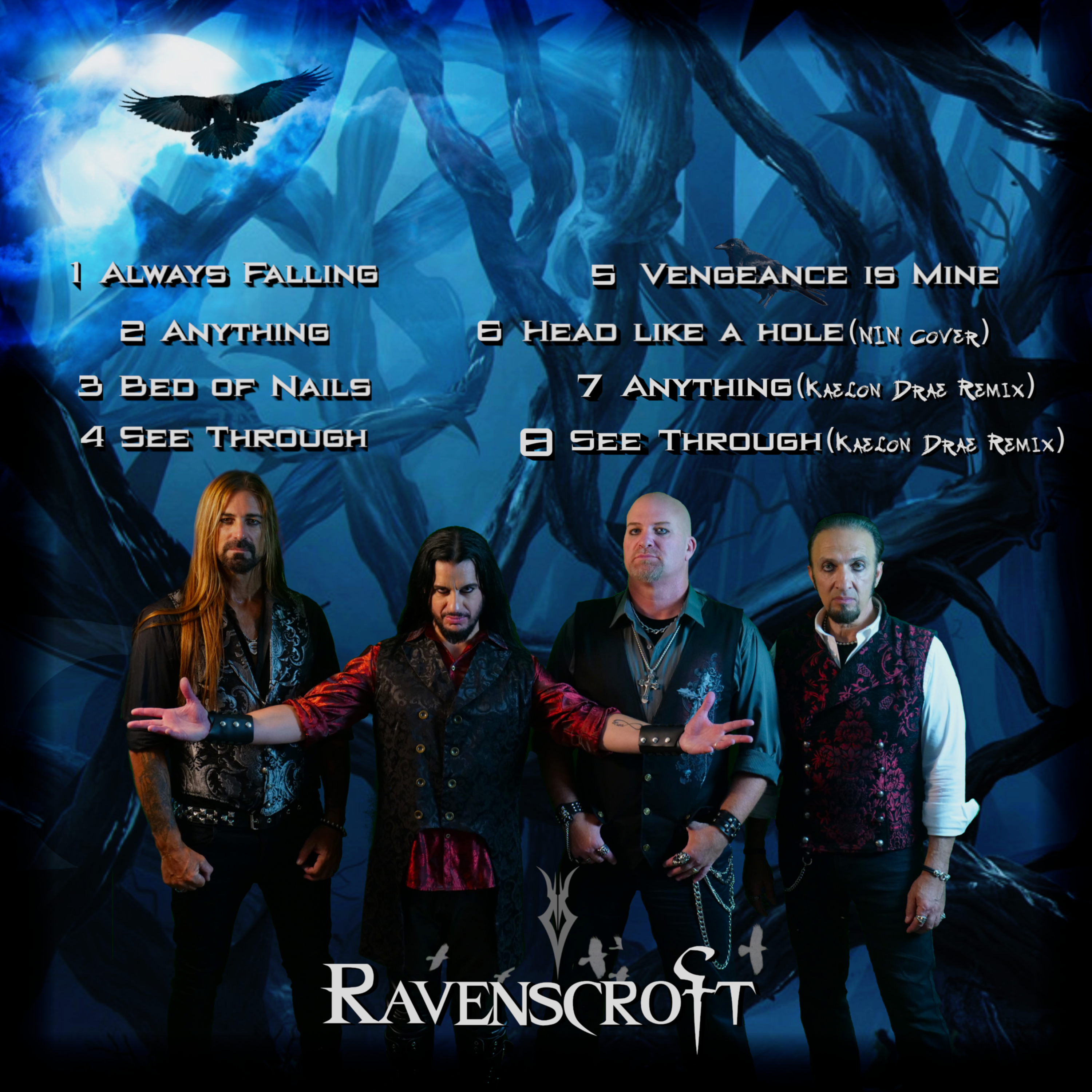Ravenscroft
Dream Realized
By Michael Aronovitz
I write rock articles and I don’t get paid for them. I make a comfortable living as an adjunct professor at three universities teaching Rhetoric and Literature. I also write dark fiction: all published by small market horror presses that are very much like a cluster of indie labels producing die-hard metal bands who could give a flying fuck about trend or political sensibilities.
It’s legit, the horror thing. I get advances and royalties; not enough to retire on, but when I sell a title it’s usually enough to buy beer and pizza for the winter, you see what I’m saying?
Yet again, I don’t get paid for the articles I write about bands. I don’t take money from rockers. Much of their “industry,” especially the one bursting with guys and gals playing the hard stuff, is volunteer. Not only are many of the “journalists” writing for free, but a lot of the bands act as their own roadies, especially if they’re the opener. They pay for their own tours, living off the merch, but that’s exactly why I’ve always dug metal. You can’t kill it, because it is one of the truest art-forms, coming straight from the backbone. It’s also the hardest to play. The pop artists and Grammy-winners can have all the pomp and the circumstance, fuck it, metal is like making tile. Working the forge. The rail operator keeping the trains running, pick your image, dance with your favorite metaphor, but any way you slice it, there’s a realness and honesty to hard rock and metal, a neighborhood-hero-feel where it would seem anyone could play in a garage, build a dream, and actually realize it without fashion and falsity.
I know. We all like the shiny objects, but when it comes to metal, it’s all about love.
I originally thought of writing rock articles so I’d have something to post on Twitter besides the buy-links to my books. Back in the 80’s I was a professional club musician in a Glam band, and it wasn’t too much of a stretch to put horror and metal in the same category. Maybe I’d make some new friends…
The first band I reviewed was Ravenscroft, an alternative metal band pushing the song Cauldron of Deceit. My article was posted in the Hellnotes blog on December 9th, 2015, but the magic wasn’t in the writing. Of course, I would be the first to take the credit for something I created, but the article actually wasn’t the point, at least not for me. It was that the singer, Ralph Buso read my rough draft, emailed me his phone number, and proceeded to offer me about two hours of his precious time. I didn’t record it. I didn’t take notes. I never claimed to be a “real journalist,” and that wasn’t the play anyway.
We talked about music and art, our childhood, our dreams.
Ravenscroft became my favorite current band. I wanted them to make it big, to become superstars, neighborhood heroes. Now, it was personal.
Fast forward to present tense and we have the Caronavirus as the number one story, if it bleeds it leads, if it spreads you’re dead, the wrong kind of horror. Ironically, Ravenscroft’s breakout album titled “See Through” gets released on March 20th, 2020, and I would argue that there is no better time for this.
Ravenscroft is about to go big and there’s no greater medicine. Their new label, Pavement Entertainment, also handles Puddle of Mudd and Candlebox, and so Ravenscroft finally gets their chance to speak to us from a lavish, cherished platform.
Hey Ralph.
My friend, here’s your megaphone.
I listened to the record and I was blown away. Ravenscroft is Ralph Buso on vocals, Brett Octane on guitars, Devin Baker on bass, and Joe Aghassi on drums. My allegiance to this band has always come first through the vocal, and here, Ralph Buso does not disappoint. He is one of those rare singers that does it all: traditional, scream, baritone to high tenor, all from the gut and straight to the heart. I have spent my whole life studying rock singing, and Ralph gives us that rare mix of a crushing metal ground-game seasoned with a multi-colored alternative feel, especially in the lower register. What I’m saying is that one doesn’t have to talk to Ralph Buso on the phone for two hours to know him.
The record itself speaks volumes.
I like every song on See Through and while that is ultimately satisfying, it is not too surprising. Ravenscroft has always come from a place of song writing first, which U-turns us back to Ralph Buso’s vocal. He is not showing off his voice; he’s singing with ours. Brett Octane can shred with the best of them, just as Devin Baker and Joe Aghassi form a rhythm section that blows our doors off, but it is the power of the dynamics and the cleverness in their changes that form this band’s signature. Songs first. Always. Egos only in the rearview.
The first cut on See Through is a powerful statement attesting to the prowess of Ravenscroft’s song writing. It starts heavy with a splash of dissonance, offering us hook upon hook weaved into Buso’s superior vocal, and the 2:25 point marks the first signature change, dynamic and surprising. At 3:09 we enjoy another switch-up, kicking off the trope in the Buso lexicon I enjoyed first with “Cauldron of Deceit,” when he repeated and built on the phrase, “Can’t you hear me scream,” mirrored here with his heart breaking, “Do you want to know why?”
There are a couple of songs on this record that are MSTR as well as Remix, and I will be the first to rave about the former. The song “Anything MSTR,” track three is the album’s big hit, no doubt about it, done deal. Not only does Buso give the performance of a lifetime, but this is Brett Octane’s grandest delivery, proving he is not only a maestro, but an innovator in terms of layering, patterning, and tonality. His instrument sounds like a razor when he needs to cut through, a laser when he wants to color the sky, and strings when he wants to make portraits.
Cut number four, “Bed of Nails,” has the driving beat and clever syncopation that proves the band doesn’t just craft songs. They tell stories, each tune a chapter, all of them connected, all of them aesthetically diverse. This one has the chunk that many metalheads thrive on, and the long outro featuring Buso with the tag-line: “I can tell that you’re in hell…it’s time to face your demons” would make even the meekest of hearts pound like a war drum.
Again, I am more a fan of the MSTR than the remix, (though the latter offers a bold measure of Ravenscroft’s level of texturing) so cut number seven, the title-track quickly became “1-A” in terms of my personal preference for which tune would wind up on the playlist at Liquid Metal or (no pun intended) Octane. This song has the locomotive back beat and addictive hook that spells “H-I-T” and if Ravenscroft didn’t “have you at hello,” this one will get you into the fold, no lie, guarantee. By the time you get to the masterful final cut, “Vengeance is Mine,” you are sold, hook, line, and sinker.
My friends, Ravenscroft has arrived.
This one’s for the band.
This one’s for us.
Michael Aronovitz is a college professor and horror author. He has published three novels, two collections, and more than fifty short stories. He is currently shopping his fourth novel titled The Sculptor.
MHF Magazine/Michael Aronovitz





